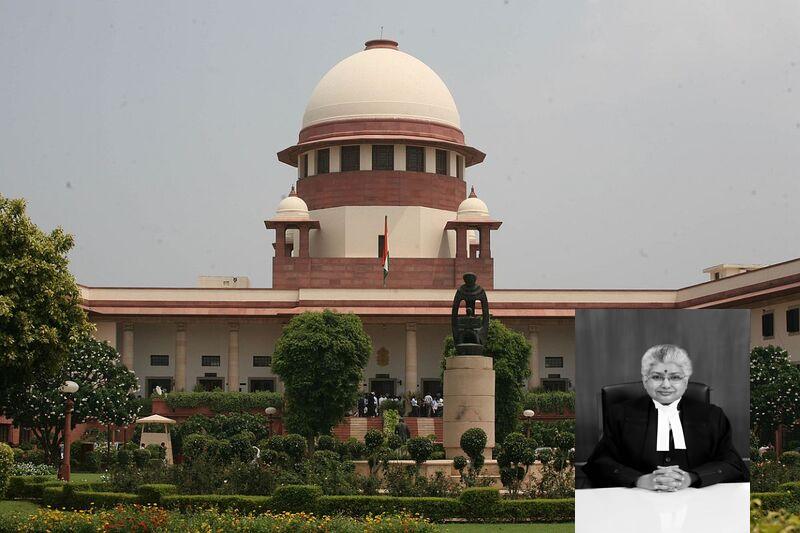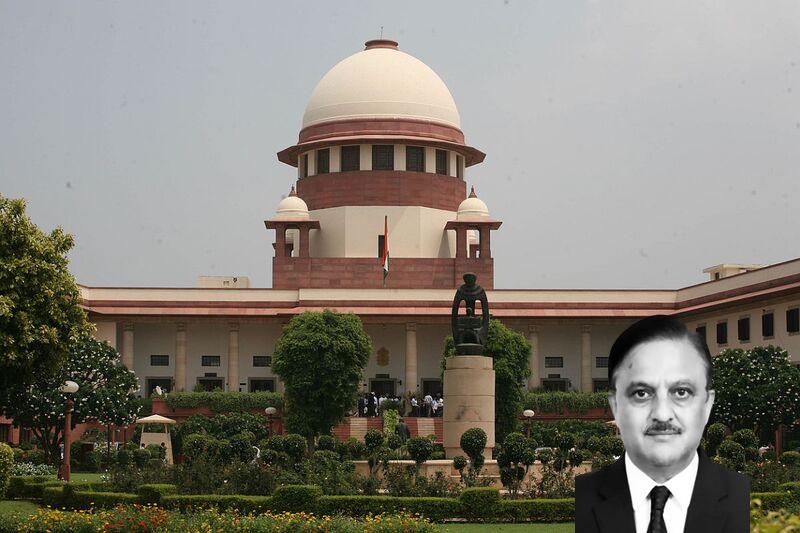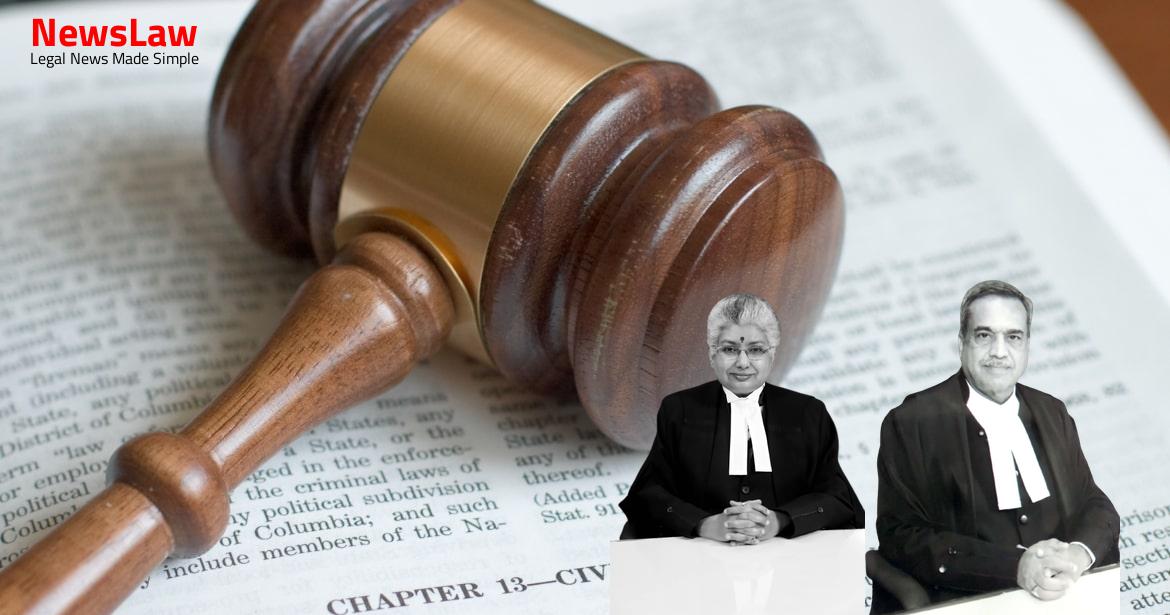The facts giving rise to the present appeal, in a nutshell are that the appellant-assessee, Kotak Mahindra Bank Limited (formerly, “M/s ING Vysya Bank Limited”) is a Public Limited Company carrying on the business of banking and is assessed to tax in Bangalore where its 2 registered office is located. The appellant filed its income tax returns for the assessment years 1994-1995 to 1999-2000 and assessment orders were passed up to assessment year 1997-1998 and the assessment for the subsequent years was pending. While various proceedings, such as an appeal before the CIT (A) for the assessment year 1997-1998, re-assessment proceedings for the assessment years 1994-1995 to 1996-1997 and regular assessment proceedings for the assessment years 1998-1999 and 1999-2000 were pending before various income tax authorities, the appellant, on 10.07.2000, approached the Settlement Commission at Chennai to settle its income tax liabilities under Section 245C (1) of the Act, by way of an application in Form No 34B bearing No 563/KNK-III/15/2000- IT.
Before the Settlement Commission, the Respondents-Revenue raised a preliminary objection contending that the appellant did not fulfil the qualifying criteria as contemplated under Section 245C(1) and hence, the application filed by the appellant was not maintainable, as, under the said provision, the appellant was required to make an application in the prescribed manner containing full and true disclosure of its income which had not been disclosed before the Assessing Officer and also the manner in which such income had been derived. It was thus contended that the purported application made before the Settlement Commission was not an application as contemplated under section 245C (1) of the Act for the reason that the appellant had not made a full 5 and true disclosure of its income which had not been disclosed before the Assessing Officer. The learned Single Judge of the High Court of Karnataka, after going through the legislative history of the provisions of Chapter-XIXA, accepted the argument advanced by the appellant that the proviso to Section 245C as it stood earlier, which enabled the Commissioner to raise an objection even at the threshold to entertain an application of 6 this nature had been later shifted to sub-section (l)(A) of Section 245D and from the year 1991, it had been totally omitted and in the light of such legislative history, it was not open to the Revenue to raise any such preliminary objection regarding maintainability of the application itself. The Single Judge was of the view that it was not necessary to examine the legal position that may require an interpretation of provisions of Section 245C at that stage when the matter itself was still at large before the Settlement Commission as the very object of Chapter- XIXA was to settle cases and to reduce the disputes and not to prolong litigation. As regards the issue of immunity from penalty and prosecution, the Commission, having regard to the fact that the appellant had co-operated in the proceedings before the Settlement Commission and true and full disclosure was made by the appellant before the Commission in paragraph 18.2 of its Order granted immunity under Section 245H(1) from the imposition of penalty and prosecution under the Act and the relevant sections of the Indian Penal Code.
The same was annulled considering that the non-disclosure was on account of RBI guidelines and subsequent disclosure on the part of the appellant, of additional income of the lease income before the Settlement Commission when the appellant realised the omission to disclose the 8 same as per income tax law. Considering the nature and circumstances and 9 the complexities of the investigation involved, the Commission was of the view that the application was to be proceeded with under Section 245D (1) of the Act and that prima-facie, a full and true disclosure of income not disclosed before the Assessing Officer had been made by the appellant. The learned Single Judge of the High Court vide Order dated 20.05.2010 upheld the Order of the Settlement Commission as regards the jurisdiction to entertain the application and also as regards the correctness of the Order passed by the Settlement Commission in determining the tax liability, but found fault with the Commission in so far as granting immunity to the appellant from the levy of penalty and initiation of prosecution was concerned. However, such constitutional remedies could be availed only when the orders passed by the Settlement Commission are contrary to the provisions of the Act or have prejudiced the Revenue/assessee or that they are vitiated by bias, fraud or malice. That the learned Single Judge ought to have appreciated that Section 245C contemplates full and true disclosure of income to be made before the Settlement Commission alone and to that extent the provisions of Section 245C are unambiguous and certain.
If the Settlement Commission is satisfied that an applicant has complied with the precondition specified therein, the Settlement Commission could exercise its discretion to grant immunity from prosecution and penalty. On 06.01.2012, this Court directed the Special Leave Petition to stand over for eight weeks and directed the Settlement Commission to dispose of the matter remanded to it by the High Court. Following the same, a Division Bench of the High of Karnataka vide Order dated 06.07.2012 dismissed the Writ Appeal preferred by the appellant and upheld the Order passed by the learned Single Judge.
Under Section 245H (1), the Settlement Commission, if satisfied that any assessee who makes the application for settlement under Section 245C, has co-operated with the Commission in the proceedings before it and has made a full and true disclosure of its income and the manner in which such income has been derived, may grant immunity from prosecution and also from the imposition of penalty, either wholly or in part with respect to the case covered by the settlement. The Division Bench noted that as per the provision of Section 245D then prevalent, the Settlement Commission on receipt of an application filed under Section 245C had to call for a report from the Commissioner and on the basis of the material contained in such report and having regard to the nature and circumstances of the case or the complexity of the investigation involved therein, the Settlement Commission was empowered to reject or allow the application to be proceeded with, within the prescribed period and it is in this background that the granting of immunity from prosecution ought to have been scrutinised by the Settlement Commission and the Single Judge in the instant case found that the same was not done, hence, the matter was rightly remanded. Sri Shyam Divan at the outset submitted that the judgment of the learned Single Judge of the High Court, as affirmed by the Division Bench by the impugned order, proceeds on a misdirection in law, in light of the facts of the case and therefore, the same is liable to be set aside by this Court. That the Settlement Commission is the sole judge of the adequacy of and the nature of evidence placed before it and so long as there was cogent material and explanation which was furnished by the appellant-assessee, the High Court ought not to have interfered. Section 245C contemplates full and true disclosure of income to be made before the Settlement Commission and the same was made by the assessee. With the aforesaid submissions, it was prayed that the present appeal be allowed and the judgment of the learned Single Judge of the High Court, as affirmed by the Division Bench in the impugned judgment dated 06.07.2013, be set aside, thereby restoring the Order of the Settlement Commission dated 04.03.2008.
Since this procedure was not adhered to and the Settlement Commission, de hors any material to demonstrate that there was any wilful concealment on the part of the assessee to evade tax, went on to pass an order granting immunity under Section 245H (1) to the appellant-assessee from imposition of penalty and prosecution under the Act, the learned Single Judge rightly set aside the Order of the Commission to such extent only and remanded the said aspect of the matter for fresh consideration. Therefore, the two provisions would have to be read harmoniously and when so read, it would emerge that in order to qualify for immunity under Section 245H, the assessee must not only co-operate with the Settlement Commission, but must also disclose income which was not reflected in the return of income, vide Ajmera Housing Corporation vs Commissioner of Income Tax, (2010) 8 SCC 739. However, in the present case, the 21 Commission did not apply its mind to the issue as to, whether, the appellant-assessee had wilfully evaded tax, before proceeding to exercise its power under Section 245H of the Act. In that context, it was submitted that the application in the present case also ought to have been dismissed in limine and the Commission ought not to have entertained the same. Whether the Division Bench of the High Court was right in affirming the findings of the learned Single Judge, to the effect that the Settlement Commission ought not to have exercised discretion under Section 245H of the Act and granted immunity to the assessee de hors any material to demonstrate that there was no wilful concealment on the part of the assessee to evade tax and on that ground, remanding the matter to the Commission for fresh consideration? Section 245C which is relevant for the purpose of this case provides the manner in which an application for settlement of cases is to be made before the Settlement Commission. Section 245H of the Act bestows upon the Settlement Commission, discretion to grant immunity to an applicant from prosecution for any offence under the Act or under the Indian Penal Code, or from the imposition of any penalty under the Act, with respect to the case covered by the settlement. Power of Settlement Commission to grant immunity from prosecution and penalty.—(1) The Settlement Commission may, if it is satisfied that any person who made the application for settlement under section 245C has co-operated with the Settlement Commission in the proceedings before it and has made a full and true disclosure of his income and the manner in which such income has been derived, grant to such person, subject to such conditions as it may think fit to impose for the reasons to be recorded in writing, immunity from prosecution for any offence under this Act or under the Indian Penal Code (45 of 1860) or under any other Central Act for the time being in force 2 and also (either wholly or in part) from the imposition of any penalty under this Act, with respect to the case covered by the settlement: Provided that no such immunity shall be granted by the Settlement Commission in cases where the proceedings for the prosecution for any such offence have been instituted before the date of receipt of the application under section 245C: 25 Provided further that the Settlement Commission shall not grant immunity from prosecution for any offence under the Indian Penal Code (45 of 1860) or under any Central Act other than this Act and the Wealth-tax Act, 1957 (27 of 1957) to a person who (1)A) An immunity granted to a person under sub-section (1) shall stand withdrawn if such person fails to pay any sum specified in the order of settlement passed under sub-section (4) of section 245D within the time specified in such order or within such further time as may be allowed by the Settlement Commission, or fails to comply with any other condition subject to which the immunity was granted and thereupon the provisions of this Act shall apply as if such immunity had not been granted. On a close reading of the provisions extracted hereinabove, it emerges that under Section 245H(1) if the Settlement Commission is satisfied that any assessee who makes the application for settlement 26 under Section 245C, has co-operated with the Settlement Commission in the proceedings before it and has made a full and true disclosure of its income and the manner in which such income has been derived, may grant immunity from prosecution or from the imposition of penalty, either wholly or in part with respect to the case covered by the settlement. While Section 245C provides that the disclosures as to income “not disclosed before the Assessing Officer” must accompany the application filed before the Settlement Commission, Section 245H provides that if the assessee has co-operated with the Settlement 27 Commission and has made “full and true disclosure of his income”, the Settlement Commission may grant immunity from prosecution and penalty. In this regard, it is observed that even if the pre-conditions prescribed under Section 245C are to be read into Section 245H, it cannot be said that in every case, the material “disclosed” by the assessee before the Commission must be something apart from what was discovered by the Assessing Officer. Therefore, instead of preferring an appeal against the assessment order, the assessee may, by making a ‘full and true disclosure’ of income, approach the Settlement Commission and offer to tax income other than that disclosed in the return of income. While exercising power under Section 245H, read with Section 245C of the Act the relevant facts and material which ought to be considered by the Commission are: i. Considering the nature and circumstances and the complexities of the investigation involved, the Commission was of the view that the application was to be proceeded with under Section 245D (1) of the Act and that prima-facie, a full and true disclosure of income not disclosed before the Assessing Officer had been made by the appellant. The disclosure of the material facts in the return of income or the documents accompanying return of income is not a bar for the applicant to approach the Commission.
We therefore allow the application to be proceeded with u/s 245D(1) of the Act.” The aforesaid findings of the Settlement Commission, demonstrate that it had applied its mind to the aspect of whether there was wilful concealment of income by the assessee. 18.2 Considering the co-operation extended by the applicant in the completion of the present settlement proceedings and the true and full disclosure made, we grant immunity u/s 245H(1) from the imposition of penalty and prosecution under the income-tax Act and relevant sections of IPC, relating to the matters covered in the present order. The Commission’s order further reveals that the appellant offered additional income and disclosed particulars of the income pertaining to the following transactions/activities: a) Two aspects of the appellant’s leasing activity, namely, undeclared lease rent liable to income tax; additional income on account of disallowance of depreciation on 26 assets claimed to be leased. In the light of the aforesaid discussion, we are of the view that the learned Single Judge of the High Court was not right in holding that the reasoning of the Settlement Commission was vague, unsound and contrary to established principles. Where the Commission is satisfied that the applicant (a) has made full and true disclosure of his income and the manner in which such income was derived, and (b) has 34 co-operated with the Commission in the proceedings before it, immunity under Section 245H may be granted. The High Court ought not to have sat in appeal as to the sufficiency of the material and particulars placed before the Commission, based on which the Commission proceeded to grant immunity from prosecution and penalty as contemplated under Section 245H of the Act. Hence, we hold that sufficiency of the material and particulars placed before the Commission, based on which the Commission proceeded to grant immunity from prosecution and penalty as contemplated under Section 245H of the Act, are beyond the scope of judicial review, except under the circumstances set out in Jyotendrasinhji vs S.I. 36 Bhattacharjee (supra), we are however of the view that in the present case, the Commission rightly exercised its discretion under Section 245H having regard to the bona fide conduct of the assessee of offering additional income for tax, apart from the income disclosed in the return of income. In light of the aforesaid discussion, we are of the view that the Order of the Settlement Commission dated 04.03.2008 was based on a correct appreciation of the law, in light of the facts of the case and the High Court ought not to have interfered with the same.
NAGARATHNA)…………………………J.



